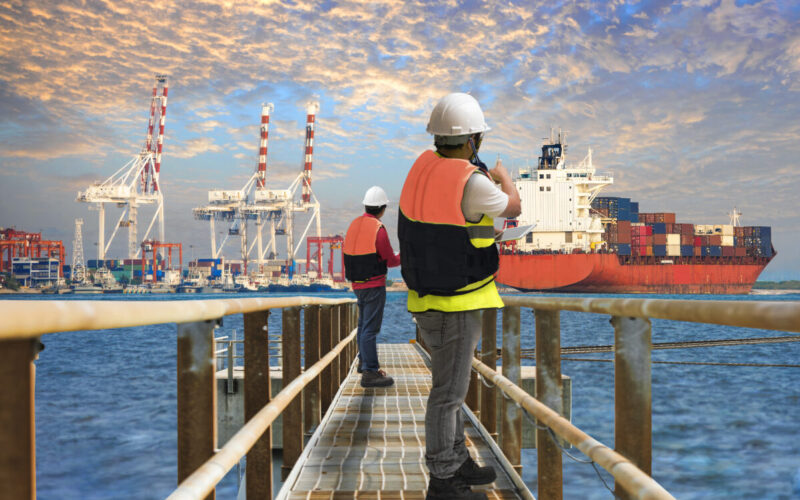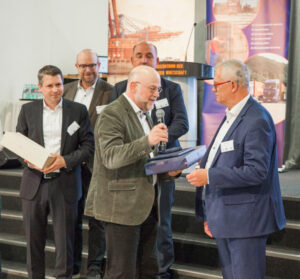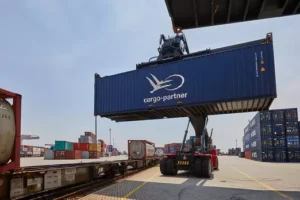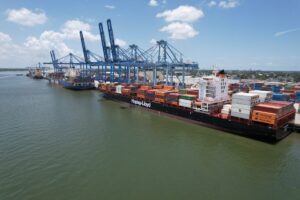The 10th session of the International Maritime Organization’s (IMO) Sub-Committee on Human Element, Training and Watchkeeping (HTW 10) has taken place at the IMO headquarters in London.
The Sub-Committee on HTW focuses on the human side of shipping. They cover matters from training and certification, guidance addressing issues for instance fatigue, to updating and revising IMO model courses.
The Sub-Committee reached a consensus on a roadmap, methodology, and a series of areas for conducting a thorough review of the International Convention on Standards of Training, Certification and Watchkeeping for Seafarers (STCW) along with the accompanying STCW Code.
The methodology agreed upon encompasses a two-step process consisting of a review of the Convention and Code “to identify gaps”, followed with a revision stage addressing those gaps. The roadmap sets out a timeline for action regarding the two-step process.
The above will then be submitted to forthcoming meeting of the Maritime Safety Committee (MSC 105) for approval.
The STCW Convention sets the fundamental requirements on training, certification, and watchkeeping for seafarers on an international scale. The Sub-Committee’s 10th session follows on from the MSC 105’s request for an adaptation of the STCW Convention and Code to meet current global standards for seafarer training.
The most notable developments of the meeting are as follows:
Bullying and harassment
The Sub-Committee have updated the Model Course 1.21 on Personal Safety and Social Responsibility as part of the STCW Convention and Code review, which anticipates validation at HTW 12 in 2026. With a goal to implement new reformative competencies, the revision reflects an enhanced effort to combatting issues pertaining to bullying and harassment, including sexual assault and sexual harassment (SASH) in the maritime sector. By means of amendments to the STCW Code, all seafarers will be subject to the updated provisions.
Alternative fuels
Moreover, the Sub-Committee explored developing training provisions specific to the needs of seafarers operating ships that use alternative fuels. Despite this, the Sub-Committee agreed that the matter should remain a separate item overseen by the MSC rather than being a part of the comprehensive review of the STCW Convention and Code.
In a summary provided by the IMO, it was reported that: “The Sub-Committee agreed that the existing output of MSC on “Development of a safety regulatory framework to support the reduction of GHG emissions from ships using new technologies and alternative fuels” could be utilised to develop relevant training provisions for seafarers and invited MSC to include this output in the agenda of the Sub-Committee for discussion at HTW 11.”
Polar waters
Additionally, the Sub-Committee considered a number of the recommendations and revisions to the STCW Convention and Code submitted by several Member States, focusing on improving training for seafarers based in polar waters.
New GISIS module on STCW
The launch of a new module on the Global Integrated Shipping Information System (GISIS), designed to facilitate parties in complying with the requirements and obligations stipulated in the STCW Convention, was agreed upon by the Sub-Committee. The aim is to improve communications and information sharing, while alleviating administrative burdens and combatting fraudulent practices.
The module will be trialled for two years, before its findings are discussed in a future session of the Sub-Committee. STCW parties are encouraged to utilise the new module to provide feedback on its “correct and reliable operation”.
READ: IMO ratifies net-zero target ‘by or around 2050’
Fraudulent certificates
Reports delivered by the Secretariat were considered by the Sub-Committee that concerned incidences of fraudulent endorsements and certificates of competency recorded between 2022 and 2023. This was deemed a critical issue that put at stake the safety and security of seafarers and ships.
“The Sub-Committee underscored the importance of having appropriate Certificate of Competency (CoC) endorsements in accordance with regulation I/10 of the STCW Convention,” the IMO summary stated.
The Sub-Committee also “encouraged STCW Parties to take a broader range of actions to tackle the problem, noting that the new STCW GISIS module would consolidate the information on parties the certificates of which were recognised in compliance with regulation I/10 and the ‘Certificate Verification facility’, with a view to allowing Parties to manage and update relevant information.”
More recently, the International Chamber of Shipping (ICS) submitted a detailed proposal to the IMO) for a Zero Emission Shipping Fund (ZESF).









